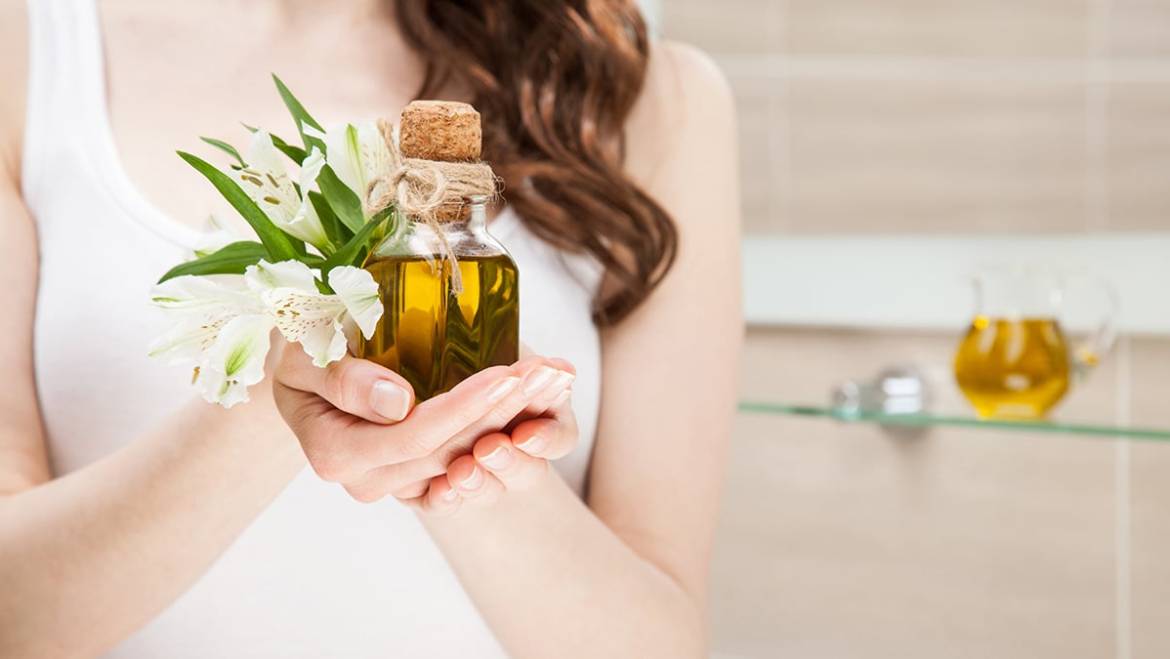When it comes to skincare, some of the most effective ingredients come straight from nature, and olive oil is a classic example. Packed with nourishing compounds and antioxidants, it has been valued for centuries as a natural beauty remedy. From soothing dry skin and supporting repair to adding a healthy glow, this simple oil delivers a variety of proven benefits.
In this article, we’ll explore 11 reasons why olive oil deserves a permanent spot in your skincare regimen. Get ready to find out what this liquid gold can really do for your skin.
11 Top Benefits of Olive Oil for Your Skin
1. Deep Hydration
One of the key benefits of olive oil for the skin is its exceptional moisturising properties. Rich in healthy fats and vitamin E, it penetrates deeply, delivering lasting hydration and sealing in moisture. It also forms a protective barrier that helps prevent water loss, leaving your skin soft, smooth, and well-nourished.
2. Naturally Slows Signs of Ageing
Many people are unaware of olive oil’s anti-ageing properties for the skin. With age, the skin naturally loses elasticity and begins to develop fine lines and wrinkles. Olive oil can help reduce these visible signs of ageing. Rich in antioxidants, such as polyphenols and vitamin E, it fights free radicals that damage skin cells and accelerate the ageing process. These antioxidants help protect the skin from oxidative stress, which in turn softens the appearance of wrinkles, fine lines, and age spots.
3. Encourages Skin Renewal and Repair
Olive oil for skin regeneration? Yes, you read that right. Olive oil contains essential fatty acids that nourish and strengthen the skin’s natural barrier, supporting the regeneration of healthy skin cells. This helps improve texture and tone, giving the skin a more youthful, vibrant appearance. Regular use of olive oil on the face can also support the skin’s natural healing process and promote a fresher, revitalised complexion.
4. Reduces Inflammation
Inflammation is a common skin concern that can cause redness and irritation, and even contribute to conditions such as acne and eczema. Fortunately, olive oil has strong anti-inflammatory properties that help soothe and calm the skin. It reduces redness and swelling, offering relief for sensitive or irritated areas. Adding olive oil to a skincare routine can help restore balance and ease many inflammation-related skin issues.
5. A Gentle Way to Cleanse Your Skin
When it comes to cleansing the skin, olive oil offers a gentle and effective alternative to harsh chemical cleansers. It acts as a natural cleanser by dissolving dirt, makeup, and impurities without stripping away the skin’s natural oils. To use, simply massage a small amount onto the face, allowing it to break down and lift away buildup. Rinse with warm water to reveal clean, refreshed skin that feels nourished and balanced.
6. Brightens and Evens Out Skin Tone
If you’re seeking a radiant, glowing complexion, olive oil is a natural choice. Its vitamin-rich composition and moisturising properties help brighten the skin and even out tone. Olive oil can reduce the appearance of dullness and enhance your natural glow. Consistent use supports a luminous complexion that reflects health and vitality.
7. Protects Skin from Daily Damage
While some may be sceptical about using olive oil for skin protection, it can be surprisingly effective. The skin is constantly exposed to environmental stressors such as pollution, UV radiation, and free radicals, all of which can cause damage and accelerate ageing. Olive oil helps counter these effects with its powerful antioxidant properties. These antioxidants shield the skin from harmful external factors, helping to prevent premature ageing and damage. Adding olive oil to a skincare routine provides an extra layer of natural defence against the elements.
8. Helps Heal Minor Cuts and Scrapes
The benefits of olive oil on the skin aren’t limited to ageing, brightening, and moisturising. It can also act as a natural remedy for minor cuts, scrapes, and burns by promoting wound healing. Its anti-inflammatory and moisturising properties help soothe the affected area and support faster recovery. Applying a small amount of olive oil can create a protective barrier and support the regeneration of healthy skin cells. However, it should only be used on minor wounds, as more serious injuries require medical attention.
9. Soothes Eczema Symptoms
Eczema is a common skin condition characterised by dry, itchy, and inflamed skin. Olive oil can offer much-needed relief for those dealing with this condition. Its moisturising properties help hydrate and soothe the skin, reducing itchiness and inflammation. Regular application to affected areas can help manage symptoms and promote healthier, calmer skin.
10. Supports a Lighter Skin Tone
If you’re looking to lighten your skin tone, olive oil can be a natural ally. While it won’t produce dramatic whitening effects, it can help even out pigmentation and reduce the appearance of dark spots. Its hydrating, nutrient-rich properties support overall skin health, leading to a smoother, clearer complexion that enhances your natural radiance.
11. A Simple Fix for Flaky Skin
Dry, flaky skin can be persistent, but olive oil provides a gentle and effective way to restore balance. Rich in nourishing compounds, it helps replenish moisture and forms a protective barrier to prevent further dryness. Over time, it improves texture, enhances hydration, and leaves the skin feeling soft.
Conclusion
Incorporating olive oil into your skincare routine can unlock a range of beauty benefits. From deeply moisturising and nourishing the skin to supporting regeneration and defending against signs of ageing, it’s a versatile and powerful natural ingredient. Whether you’re dealing with dryness, fine lines, or conditions like acne or eczema, olive oil can be a valuable addition. Embrace the timeless benefits of this ancient remedy and enjoy the radiant, healthy skin you’ve always desired.
Frequently Asked Questions (FAQs)
1. How to Use Olive Oil for Skin Whitening?
To use olive oil for skin whitening, try making a homemade face mask by combining it with natural ingredients like lemon juice or honey. Apply the mixture to your face, leave it on for 15-20 minutes, and then rinse off with warm water. Always perform a patch test before using any new ingredients on your skin, and consult a dermatologist if you have any concerns.
2. Is It Good to Put Olive Oil Directly on Your Skin?
It is generally safe to apply olive oil directly to your skin. However, it’s important to consider your skin type and sensitivity. If you have oily or acne-prone skin, a lighter option such as jojoba oil may be more suitable. Additionally, always opt for high-quality extra virgin olive oil when using it for skincare.
3. Does Olive Oil Lighten Skin?
While olive oil may not offer dramatic lightening effects, it can help even out skin tone and reduce the appearance of dark spots. Its moisturising and nourishing properties support a clearer, more radiant complexion.
4. Which Oil Is Best for Dark Skin?
Several oils can benefit dark skin: olive, coconut, almond, and argan oils. They provide deep moisturisation, nourishment, and protection, helping to maintain the skin’s health, radiance, and natural glow.
5. Can Olive Oil Remove Dark Spots?
Olive oil alone may not completely remove dark spots, but it can help lighten their appearance over time. For more effective results, consider using targeted skincare products or consult a dermatologist for professional advice.
6. What Are the Side Effects of Taking Olive Oil for the Face?
Olive oil is well-loved for its nourishing and hydrating properties, but like any skincare ingredient, it may not be ideal for everyone. Those with sensitive or acne-prone skin might experience clogged pores or mild irritation if used excessively.
To ensure the best results, try a patch test before applying it to your face. Choosing high-quality, extra virgin olive oil and using it in moderation can help minimise any potential issues. When in doubt, consulting a dermatologist is always a smart step.


